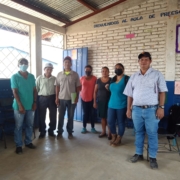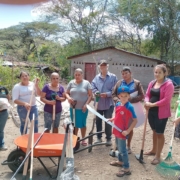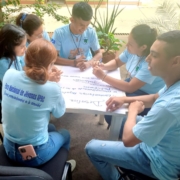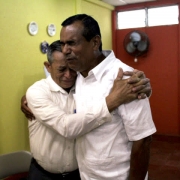Leadership Development
Leaders in the community receive training in community organization so they can develop new resources and work with the local government to achieve their goals. Leaders create a formal committee that identifies community needs and creates strategies to meet them. In each five-year cycle, we train more than 250 leaders who advocate for infrastructure projects such as road repair, electricity and communal wells. These committee members also serve as leaders in their communities and main points of contact for CEPAD.
The children and youth who participate in CEPAD’s youth programs learn skills like public speaking, leadership, and care for the environment. They play sports, create art, and develop self-esteem. The women and older teens who lead these programs in each community receive training to identify children at risk for violence in the home, drug and alcohol use, and low school achievements so they can give special attention to those participants.
Violence against women is the number one crime in rural Nicaragua. CEPAD teaches women in our partner communities about their rights and give them tools to escape violent homes and help their friends and family members do the same.
Pastors serve as community leaders in areas without formal government structures. From 2009-2014, we worked with 180 pastors and created 18 pastoral committees. CEPAD provides practical workshops and self-study programs in theology to pastors and their congregations. Pastors, leaders, and congregants also select topics to study such as stewardship of creation, domestic violence, self-esteem, and working with youth.
Check out Elba’s story on why these pastoral trainings are so important and read how developing leaders transformed the community of Santa Maria here.




